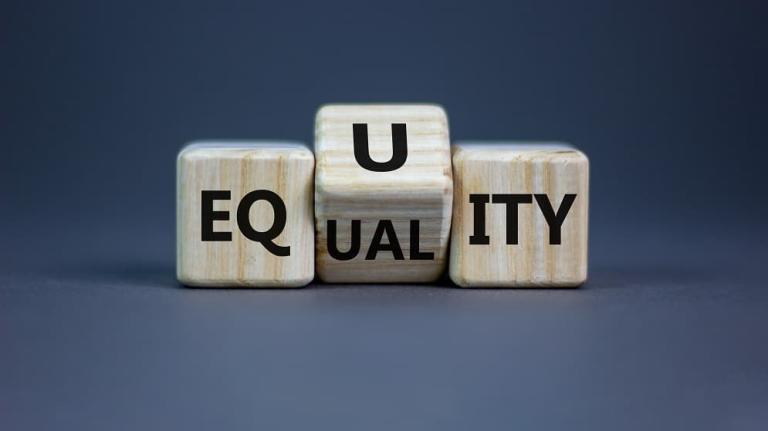The emphasis upon equality under the law was and remains an important affirmation in American life. Although – as a nation – we have never fully and faithfully observed its implications, it has been a goal that has steadily transformed the way in which we live as a country. Such guarantees create the context for choice and creativity. They enhance a citizen’s sense of agency, and foster initiative.
Equity in outcome, however, has gradually supplanted that priority in many quarters. That is a very different goal, and it is both unachievable and undesirable.
There are countless reasons for this assessment. But the easiest to grasp is this: The guarantee of equality under the law can be enforced. Equity of outcome cannot be. Freedom of choice, never mind a thousand other variables, ensures that we cannot create a world in which any workforce can be perfectly balanced and representative. Not even coercion – which is itself an evil in a free society – could guarantee equity in outcomes.
We can encourage people of diverse backgrounds to prepare for the disciplines and professions in which we participate. We can take a long view and create educational systems in which people can theoretically prepare for the endeavors in which we are involved. But we cannot require people to fill a demographic quota in the pursuit of a societal ideal.
It is difficult, in fact, to believe that anyone seriously believes that a goal of this kind can be achieved. Priorities of this kind, in fact, seem to be the basis for little more than perpetual discontent, offering the self-designated prophet grounds for bitterness and a pretext for discontent. Our time and energy would be far better spent creating opportunities for choice and creativity at every level of society for as many people as possible.
It is interesting that – as much emphasis that Scripture places upon attending to the needs of the poor, widows, and orphans – it never places emphasis upon creating a set of circumstances in which people experience equal outcomes. Exactly why this is the case can only be a matter of conjecture:
- It may be traceable to the fact that Scripture regularly speaks to people in the midst of life’s realities. It does not indulge in utopian dreams that are the work of humankind.
- Closely related: It may be traceable to the fact that Scripture clearly holds that a perfect resolution of humankind’s relationship with God and with itself lies wholly in the province of divine action.
- It may be traceable to the fact that in Scripture attention to the poor, the widowed, and the orphaned is about both the restoration of people to their place among the people of God, as well as their material wellbeing.
- It may be traceable to the conviction that when humankind attempts to offer up its efforts in place of God’s saving work, things always go awry.
- Or it may have to do with all of these assumptions.
Whatever the reasons, Scripture insists that those who live on the margins of our communities are our responsibility, and that responsibility cannot be discharged at arm’s length or once and for all.
It is understandable that our neighbors who are not Christians believe it can be. In a world without hope for redemption and without transcendent commitments, salvation can only be imagined in materialist categories. It can only be achieved in the here and now, and its achievement can only be measured in bald categories like equity. Likewise, in a world without divine agency, the only overarching agency is governmental and, absent an appeal to a transformed heart, those goals can only be achieved through legislative coercion. Ironically, because the human condition militates against equity of outcome at every twist and turn, it also becomes the eternal rallying cry – an unachievable idea that is forever occupied with identifying the people who are the obstacles to that form of salvation.
By contrast, for Christians the responsibility is ever-present and personal – and far from ignoring that responsibility – the biblical emphasis is all-embracing in the vision of wellbeing that it offers. But – in the face of life’s realities – it is also hopeful, promising a place for all of God’s children.













